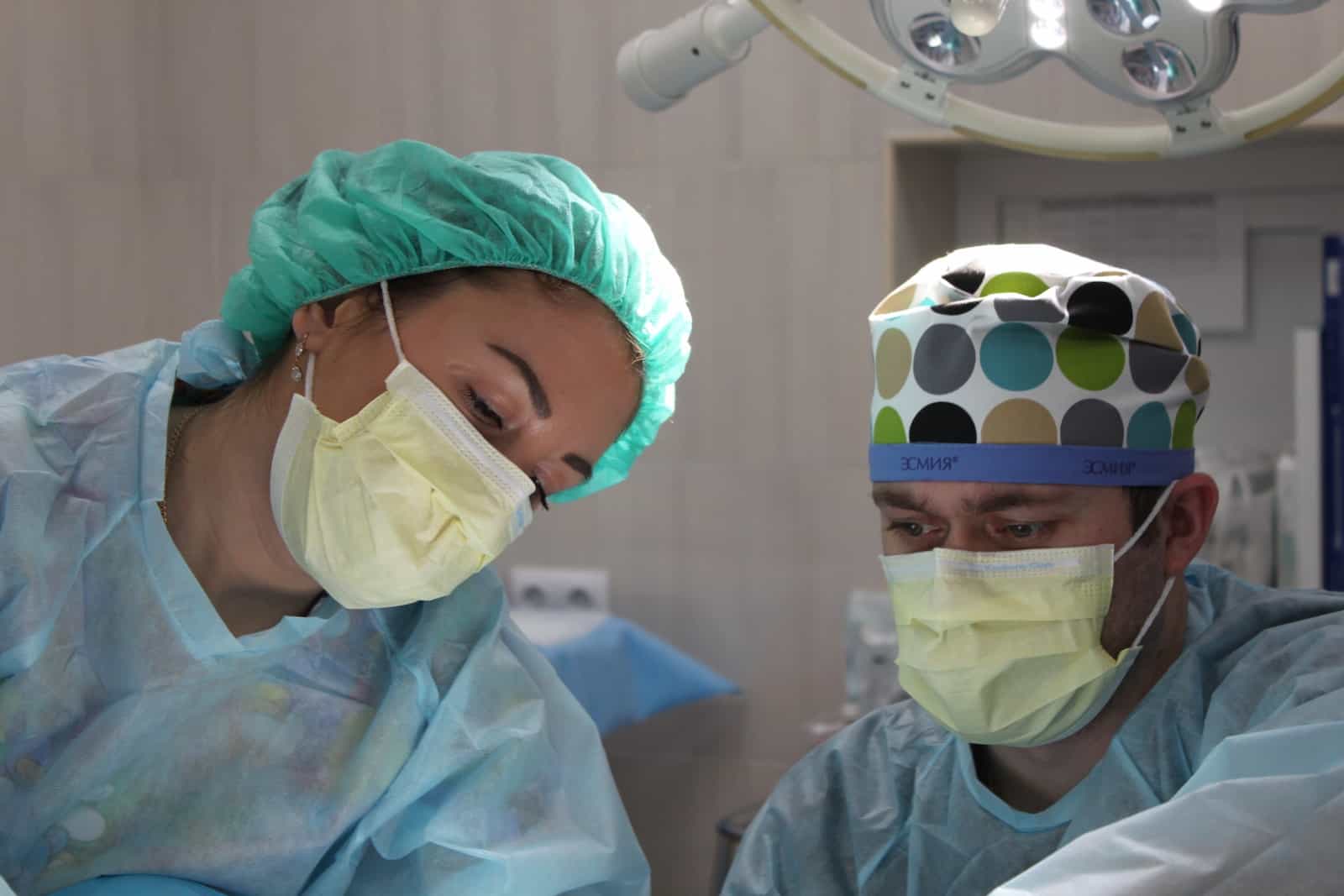Tips and Strategies: Thriving In Medical Device Sales 2023
Are you looking to excel in the highly competitive world of medical device sales? With the right strategies and tactics, you can stand out from your competitors and build a successful career.
The medical device industry is constantly evolving, with new products, regulations, and technologies emerging all the time. To stay ahead of the curve, it’s important to develop a deep understanding of this industry and its unique challenges.
Here, we’ll share some powerful tips and strategies for thriving in medical device sales. Whether you’re just starting out or looking to take your career to the next level, these insights will help you succeed in this exciting field.
From building strong relationships with customers to leveraging social media for sales success, there are many effective ways to boost your performance and achieve your goals. So let’s dive in!
Understanding the Medical Device Sales Industry
If you want to truly succeed in the world of medical device sales, it’s essential that you have a deep understanding of the industry as a whole. This means being knowledgeable on all aspects, including regulatory compliance and technology advancements.
The medical device sales industry is heavily regulated by government agencies such as the FDA, so having a thorough understanding of these regulations will ensure that you’re able to provide accurate information to your clients. In addition, staying up-to-date with the latest technology advancements in the field can give you an edge over your competition.
Knowing how new technologies work and how they can benefit patients is crucial when selling medical devices. It also shows that you’re committed to providing your clients with the best possible solutions for their needs. By staying informed about regulatory compliance and technology advancements, you can position yourself as an expert in the industry and gain the trust of potential clients.

Researching Your Target Market
Discovering your ideal customer base is key to success in the competitive world of medical device sales. This involves conducting a thorough competitive analysis to identify gaps in the market and determine how your product can meet the needs of potential customers better than your competitors.
You must also conduct a comprehensive assessment of customer needs, which should include identifying their pain points, understanding their goals and objectives, and determining what factors influence their purchasing decisions.
To evoke an emotional response in your audience while researching your target market, consider these four tips:
- Put yourself in the shoes of your potential customers to understand their challenges and frustrations.
- Consider how you can make a positive impact on people’s lives by providing them with products that improve their health outcomes.
- Use data-driven insights to guide your decision-making and strategies for selling medical devices.
- Remember that every sale you make has the potential to change someone’s life for the better. Keep this purpose at the forefront of everything you do.
By conducting thorough research into your target market, you will be able to identify opportunities for growth and develop effective strategies for selling medical devices. By using these tips, you can’t only succeed but also positively impact people’s lives through improved healthcare outcomes.
Building Strong Relationships with Customers
Building strong relationships with your customers is crucial to making a lasting impact and truly improving healthcare outcomes for people in need – remember, “People don’t care how much you know until they know how much you care.” Effective communication is key to building trust with your customers. To build trust, it’s important to listen actively, ask questions, and understand their needs and goals. This will help you establish a rapport that goes beyond just selling products.
One way to build strong relationships with your customers is to provide them with exceptional service. This includes being responsive to their needs, providing timely follow-ups, and going above and beyond to solve any issues they may have. Additionally, it’s important to be transparent about the products or services you offer. Be honest about what they can expect from using your product and always keep them informed of any updates or changes. By doing these things consistently over time, you’ll build a reputation as someone who cares deeply about their customers’ success – which will ultimately lead to long-term loyalty and success for both parties involved.
| Communication Type | % Impact on Building Trust |
|---|---|
| Verbal Communication | 7% |
| Tone of Voice | 38% |
| Body Language | 55% |
This table highlights the importance of nonverbal communication when building trust with your customers. It shows that while verbal communication is important (making up 7%), tone of voice (38%) and body language (55%) are even more impactful in creating a connection with others. Therefore, paying attention to these aspects of communication can make all the difference in establishing long-lasting relationships with your clients in medical device sales.

Leveraging Social Media for Sales Success
Leveraging social media can be a game-changer for achieving sales success in the healthcare industry. As a medical device sales professional, you have to keep up with the latest trends and techniques to stay ahead of your competition.
Social media is no longer just a platform for personal use, but it’s become a powerful tool that can help you build relationships, connect with potential customers, and close deals. To maximize outreach on social media, it’s important to understand social media etiquette.
Be mindful of what you post and how often you post. Avoid posting too much promotional content or spamming your followers with irrelevant information. Instead, focus on creating engaging content that adds value to your audience’s lives.
Additionally, utilizing influencers can help increase brand awareness and credibility within the healthcare community. By partnering with reputable influencers in your industry, you can expand your reach and connect with potential customers who may not have heard of your product otherwise.
With these tactics in mind, leveraging social media can help take your medical device sales career to new heights.
Developing Effective Sales Presentations
In this section, we’ll explore how to create presentations that captivate your audience and ultimately lead to successful sales.
The first step is to create impactful visuals that help convey your message. This can be achieved through the use of high-quality images, videos, and graphics that support your key points. Be sure to keep your visuals simple and easy to understand so as not to overwhelm or confuse your audience.
Next, incorporate storytelling techniques in sales presentations. By telling a story that resonates with your audience, you can create an emotional connection that helps them remember your message long after the presentation has ended. Use anecdotes and real-life examples that illustrate the benefits of your product or service.
Remember to focus on the needs and desires of your audience rather than just listing features and benefits. With these tips in mind, you’ll be able to craft compelling sales presentations that leave a lasting impact on potential customers.
Utilizing Data Analytics in Sales Strategy
Get ready to revolutionize your sales game with mind-blowing insights on how data analytics can skyrocket your success.
Implementing automation tools and predictive modeling for sales forecasting is a game-changer in medical device sales. These powerful tools offer invaluable insights that enable you to identify customer needs, anticipate market trends, and make data-driven decisions that lead to increased revenue.
By using automation tools, you can streamline the sales process by automating repetitive tasks like data entry and report generation. This not only saves time but also reduces errors, allowing you to focus on building relationships with customers.
Additionally, predictive modeling enables you to forecast future demand for your products accurately. By analyzing past sales patterns and market trends, you can predict which products are likely to be in high demand and adjust your inventory accordingly. With these insights at hand, you can stay ahead of the competition and maximize profitability.
Staying Up-to-Date on Industry Trends and Regulations
Stay on top of the game by keeping yourself informed about the latest industry insights and regulatory compliance. It’s important to understand what’s happening in your market so that you can make informed decisions and stay ahead of the competition.
Here are some tips for staying up-to-date:
- Follow industry publications and blogs: Reading articles from reputable sources is a great way to keep track of new developments in your field. Look for publications that cover medical device sales specifically, as well as general healthcare news.
- Attend conferences and trade shows: These events offer an opportunity to network with other professionals in your field, hear from thought leaders, and learn about new products and trends.
- Join professional organizations: Being part of a professional organization can give you access to resources such as webinars, training programs, and mentorship opportunities.
By staying informed about industry trends and regulations, you’ll be better equipped to succeed in medical device sales. Make it a priority to invest time into keeping up-to-date so that you can continue to grow your business.
Collaborating with Other Sales Professionals
Collaborating with other sales professionals can expand your knowledge and network, leading to new opportunities and a stronger competitive edge.
Networking opportunities are abundant in the medical device sales industry, and establishing connections with other sales representatives can provide access to valuable information about market trends, customer preferences, and best practices for selling medical devices.
By collaborating with other professionals from different regions or product lines, you can gain insights into unique approaches that have worked in various territories.
Cross-functional collaboration is also essential for thriving in medical device sales. Working together with marketing, product development, and regulatory teams can help you understand the nuances of your products better and develop more effective strategies for reaching customers.
It’s important to build relationships with these teams so that you can leverage their expertise when needed to answer complex questions from customers or overcome objections during a sale.
Ultimately, maintaining strong working relationships across departments will benefit everyone involved in selling medical devices by ensuring that products are marketed effectively while also meeting regulatory requirements.
Navigating through common sales challenges can be tough, but with a little bit of creativity and perseverance, you can overcome obstacles and achieve success in this competitive industry. One of the most important steps is to learn how to overcome objections. When a potential customer raises an objection, it’s important not to get defensive or give up. Instead, try to understand their concerns and address them in a way that shows how your product can meet their needs. This takes practice and patience, but it’s worth it when you’re able to turn a hesitant prospect into a loyal customer.
Sales negotiation is another key skill for thriving in medical device sales. It’s important to know what your product is worth and be confident in negotiating fair prices with customers. However, it’s also important to be flexible and willing to compromise when necessary. Remember that the goal is not just to make a sale, but also to build long-term relationships with customers who trust your expertise and value your products.
By mastering these skills and staying focused on providing excellent service, you can navigate through common sales challenges with ease and achieve great success in the medical device sales industry.
- Practice active listening: Listen carefully to your customers’ concerns so that you can address them effectively.
- Be patient: Overcoming objections takes time and persistence.
- Research your customer before negotiations: Learn about their business needs so that you can tailor your pitch accordingly.
- Focus on building relationships: Don’t just think about making one sale; aim for repeat business by creating loyal customers who trust you and appreciate the value of your products.
Measuring and Analyzing Sales Performance for Continuous Improvement
In this section, we’ll delve into how to measure and analyze your sales performance to continuously improve and stay ahead in the competitive industry. It’s essential to track your sales metrics and regularly analyze them for better insights into what’s working and what’s not.
By understanding your sales data, you can identify areas where you need to improve, adjust your strategy accordingly, and increase your chances of success. One way to keep track of your sales metrics is by using a performance analysis tool that collects data on every sale you make. This tool will help you track key metrics like conversion rates, average deal size, win rate, and more.
With this information at hand, you can identify patterns in your sales process that suggest where there may be room for improvement. Additionally, feedback loops are crucial in analyzing performance because they allow you to get feedback from customers or colleagues about what they liked or didn’t like about the product or service offered.
By acting on this feedback consistently over time through continuous improvement cycles that integrate new customer insights with internal analytics tools such as dashboards or reports generated using CRM software solutions like Salesforce.com – which enable real-time analysis – you can stay ahead of the competition while fulfilling customer needs better than ever before!
Frequently Asked Questions
What are some effective negotiation tactics for closing medical device sales deals?
To close a medical device sales deal, you need to master the art of persuasion. Building long-term relationships with your clients is key to achieving this goal.
To do so, you must first establish trust by listening carefully to their needs and concerns. Once you have their attention, highlight the benefits of your product and how it can solve their problems. Use data and statistics to back up your claims and provide evidence that supports your position.
Finally, be willing to negotiate in good faith and find compromises that work for both parties. Remember that successful negotiations are about finding common ground and building mutually beneficial relationships over time.
By mastering these tactics, you’ll be able to close more deals and build a successful career in medical device sales while enjoying the freedom that comes with financial success.
How can sales professionals stay motivated and avoid burnout in a competitive industry?
Did you know that sales professionals who are motivated are 50% more likely to achieve their sales targets than those who aren’t?
Sales motivation is crucial to success in the medical device sales industry, but with high-pressure situations and demanding customers, it’s easy to fall into burnout.
To prevent burnout and stay motivated, focus on setting achievable goals, celebrating small wins along the way, and taking breaks when needed.
Remember that your mental health is just as important as your sales numbers. By prioritizing self-care and staying motivated, you can thrive in this competitive industry without sacrificing your well-being.
What are some common mistakes that sales professionals make in the medical device industry and how can they be avoided?
Effective communication and building trust are crucial in the medical device sales industry, but sales professionals often make the mistake of solely focusing on their product’s features instead of understanding their client’s needs.
It’s important to listen actively and ask questions to uncover your client’s pain points and challenges. By doing so, you can tailor your pitch to meet their specific needs and build trust that will lead to long-term partnerships.
Additionally, being transparent about pricing and timelines can also establish credibility and prevent misunderstandings. Remember that effective communication is a two-way street, so always be open to feedback and willing to adapt your approach to better serve your clients.
By prioritizing these aspects, you can avoid common mistakes in the medical device sales industry and excel in your sales role while fostering lasting relationships with your clients.
What are some strategies for managing difficult customers or clients in the medical device industry?
Dealing with difficult clients in the medical device sales industry can be a daunting task, but conflict resolution is key to maintaining a successful career.
Remember the acronym H.A.L.T – never approach a situation when you’re hungry, angry, lonely or tired as this can lead to further tension and misunderstandings.
Instead, listen actively to your client’s concerns and empathize with their frustrations. Take ownership of any mistakes and work towards finding a mutually beneficial solution.
By practicing effective communication skills and being open-minded, you can turn challenging situations into opportunities for growth and strengthen your relationships with clients in the long run.
How can sales professionals effectively balance their time between prospecting for new clients and nurturing existing ones?
To effectively balance your time between prospecting new clients and nurturing existing ones, you need to prioritize your activities. Time management is key in sales, so identify the most valuable customers and invest more time in them.
It’s important to remember that customer retention is just as crucial as attracting new business. Build strong relationships with your existing clients by understanding their needs and providing exceptional service. This will lead to repeat business and referrals, which can save you time on prospecting in the long run.
Keep track of your daily tasks and goals using a planner or calendar to ensure you’re using your time efficiently. By managing your time effectively, you can focus on both prospecting new clients and retaining current ones without sacrificing one for the other.
Conclusion
You now understand the importance of researching your target market, building strong relationships with customers, leveraging social media for sales success, developing effective sales presentations, staying up-to-date on industry trends and regulations, collaborating with other sales professionals, navigating common sales challenges, and measuring and analyzing sales performance for continuous improvement.
Remember, just like a surgeon needs to continually update their skills and knowledge to stay at the forefront of medicine, you too need to stay current in the ever-evolving world of medical device sales.
Embrace change as an opportunity to grow and adapt. Use your creativity to explore new ways of reaching out to potential customers while maintaining an unwavering commitment to ethical practices.
In conclusion, you now possess the tools necessary for success in medical device sales. Your hard work will pay off as you continue to build meaningful relationships with your customers and provide them with innovative solutions that improve health outcomes.
Keep pushing yourself towards excellence – embrace every challenge as an opportunity for growth – and watch as you become a true champion in this exciting field!






